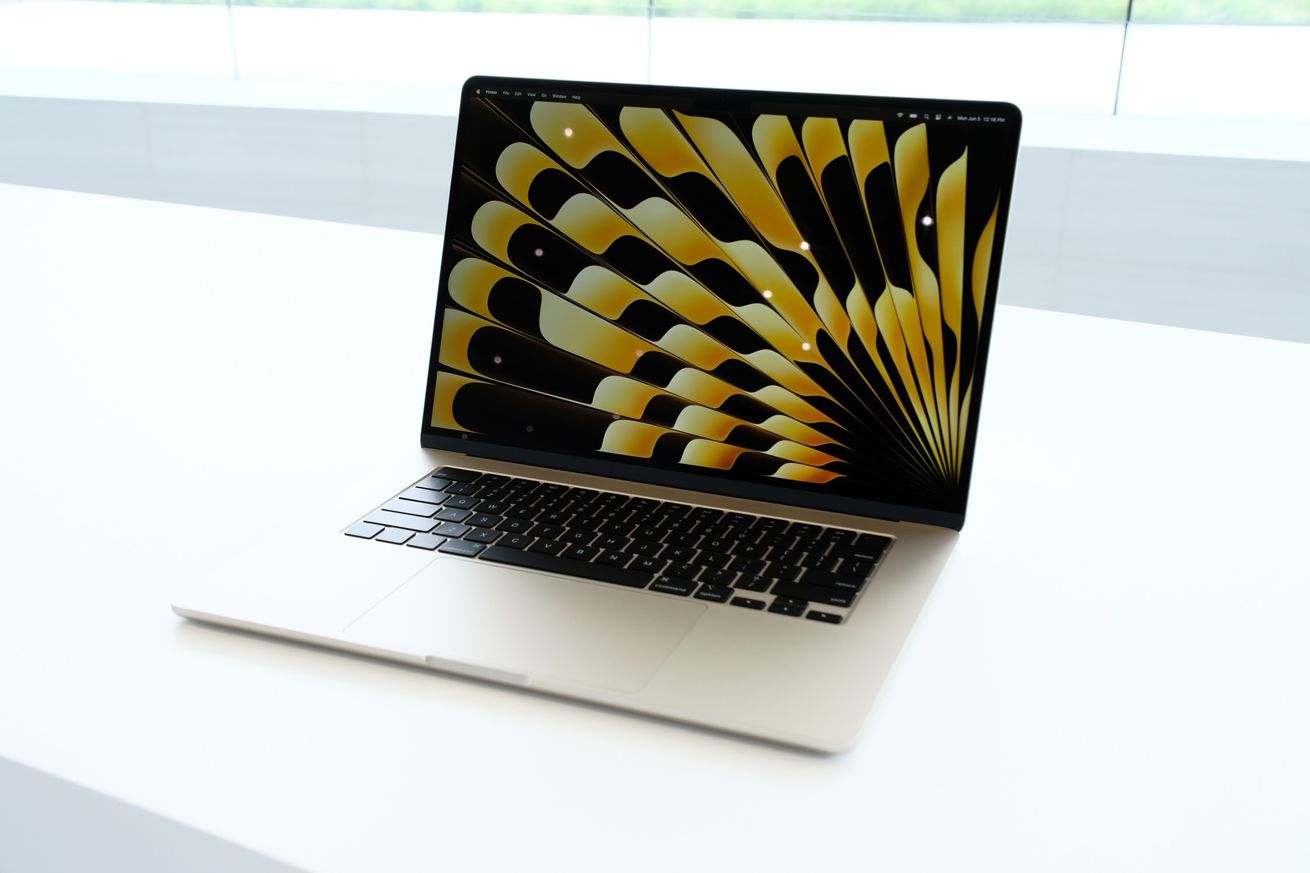
You can thank slumping laptop sales for the 15-inch MacBook Air
A couple of years ago, laptop sales were through the roof. With the majority of the population stuck at home for both work and school, plus flush with cash from government stimulus checks, many people were in need of better computers for use at home. And many of them bought laptops, to the tune of 340 million units in 2021.
But that wave is long over. Overall laptop sales fell by double digits in 2022, and they haven’t bounced back in 2023. Apple, ever the outlier in so many markets, did manage to squeak out an increase in 2022 over 2021. But the last two quarters have seen the sharpest year-over-year percentage decline in revenue from the Mac in half a decade. Last quarter’s Mac revenue was the lowest since the third quarter of 2020. (Jason Snell over at Six Colors has a lot of handy charts that illustrate this — you want to look for the “Mac revenue” and “year-over-year Mac revenue change” charts.) Despite a huge bump from the revamped MacBook Pro that came out in late 2021 and strong performance from last year’s M2 Air, Mac sales have slowed down a lot.
So what’s a company to do to put some wind back into those sails sales? Well, if you’re Apple, it seems the move is to cut the price of its most popular laptop by $100. It’s also giving the people what they’ve long been asking for: a bigger MacBook Air.
The MacBook Air has long been the standard-bearer for a thin-and-light productivity and creative laptop. The latest models have a combination of performance, battery life, and build quality that Windows laptops just can’t touch. And though it sits firmly in the “over $1,000 premium tier,” the MacBook Air provides a surprisingly good value for what you get, something that isn’t often said about Apple products.
Typically, Apple releases new versions of the Air when it has a new chip to put in them, which then leads to a sales bump. But its next chip, presumably the M3, apparently isn’t ready yet. So instead of a refreshed 13-inch Air with a new processor, we’re getting a bigger MacBook Air with the same chip and performance we’ve seen for the past year.
There’s never been a MacBook Air with a big screen. Despite 15-inch Windows laptops being the most popular size in that world for decades, the biggest screen you could get on a MacBook Air has been in the 13-inch range. If you wanted a Mac laptop with a bigger display (a reasonable request!), you had to pony up for either a slightly larger one in the 14-inch MacBook Pro (starting at $1,999, $800 more than the Air) or opt for an appreciably larger screen in the 16-inch MacBook Pro (starting at $2,499, more than twice the cost of the Air). Beyond those higher prices, the Pro models are thicker, heavier, and generally overpowered for what most people need from a laptop. It was not a fun choice to make if all you wanted was a bigger screen for your browser and spreadsheets.
The 15-inch MacBook Air addresses this need head-on. It weighs 3.3 pounds, is effectively the same thickness as the 13-inch Air, and it starts at $1,299. It’s using the same M2 processor that came out a year ago. It has the same options for RAM and storage, the same expected battery life, and the same port options and webcam. The only difference, aside from the larger screen, is a six-speaker sound system. It fills a long-standing gap in Apple’s laptop lineup, and I have a feeling it’s going to be very popular.
Apple could have released a 15-inch Air basically any time it wanted over the past decade. There could have been 15-inch Intel versions, a 15-inch M1 model, or heck, Apple could have released a 15-inch Air at the same time it debuted the new Air design language and M2 chip a year ago. In fact, there were reports that Apple was planning a 15-inch model before the M2 Air even came out.
But by holding the release to this year, Apple is able to counter the slow Mac performance for the past few quarters and have something new to shore up growth against the strong performance from last year’s M2 Air. It’s a playbook Apple has used in the past — when iPhone sales start to slow down, it expands the lineup to include more models.
This is Apple’s ace in its sleeve, and it’s playing it now
Looking at this week’s announcement through the lens of sales numbers and revenue reports can feel a bit cynical, but it’s important to remember that, ultimately, Apple is a massive corporation focused on revenue and profits, and it’s very good at making smart business plays. This is Apple’s ace in its sleeve for the Mac business, and it’s timing the play for when it’s most needed.
Of course, this isn’t a total loss for consumers: if you’ve been wanting a larger MacBook Air, you finally have the option without having to buy a MacBook Pro you largely don’t need. Though the M2 chip has been out for a year, it’s still an excellent processor and extremely efficient — I have no doubt the 15-inch Air is going to be a top-rated laptop when reviews come out.
I just wish we’d had the option for one without having to wait until now.

